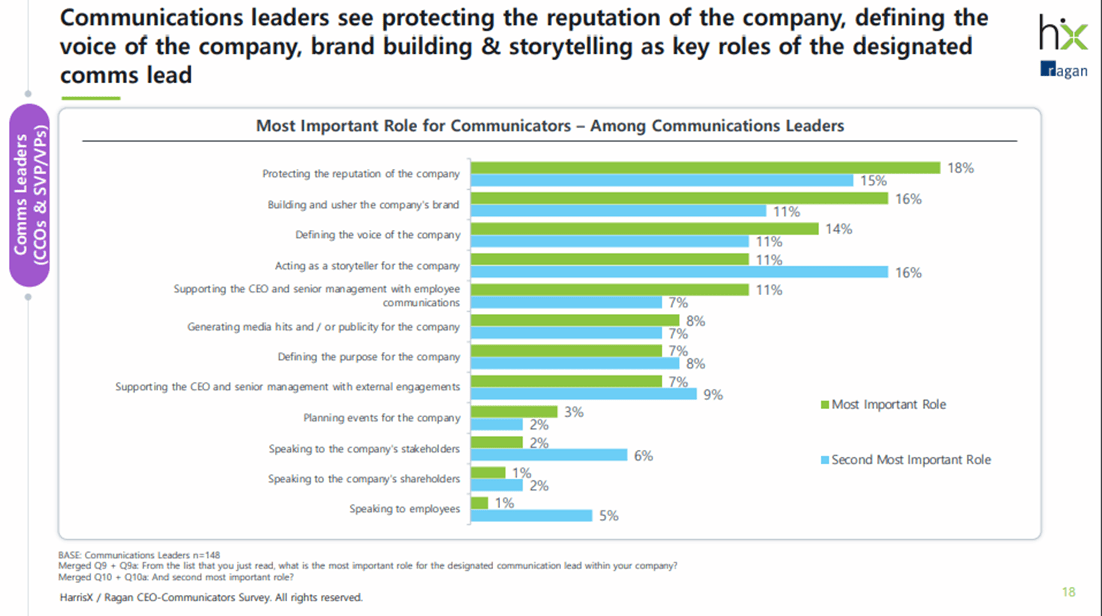Instagram unveils new safety features for kids and parents, comms leaders identify their most important roles, and American Airlines CEO announces retirement
Also: Hotels.com launches 24-hour holiday music challenge, Better.com CEO apologizes to employees, and more.
Hello, communicators:
Putting as spin on the classic Christmas carol, Hotels.com created a “Not-So-Silent-Night” suite at Chicago’s Fairmont Hotel that will challenge the winner of a two-night stay to endure 24 uninterrupted hours of holiday music. The winner will accrue 25 free hotel nights from Hotels.com if they last through the duration of the contest.
The hotel stay also includes a personalized wake-up call video from former NSYNC member Lance Bass, $500 in room service credit and a $1,000 travel stipend.

“The Hotels.com Not-So-Silent Night Challenge takes the ‘love it or leave it’ conversation that surrounds holiday music every year to a new extreme,” Bass said in a statement shared with PR Daily. “I’m excited to send a wake-up call to the lucky guest(s), although they might be too busy jamming out to sleep much! Hotels.com has taken festive holiday stays to a new level and, as someone who lives for this season, I am here for it.”
In line with Hotel.com’s previous stunts which have included a dream analysis and a bathtub influencer contest, the brand’s new festive campaign demonstrates how an absurd marketing contest can also grab headlines in a busy holiday season.
Here are today’s top stories:
Instagram announces new teen safety features ahead of Senate hearing
Instagram introduced a new suite of features for kids and parents focused on protecting younger users on the platform. Included are new policies which prevent users from tagging or mentioning people under 16 who don’t follow them, along with stricter post and account recommendations shown to users under 18.
New tools let parents and guardians see how much time their children are spending on the app to set daily limits, and let users under age 18 notify their parents through the app when they report bullying and harassment. These new features will require opt-in permission from kids through their accounts. Instagram is also including a “take a break” feature that will let users set a reminder to step away from the app.
These features were announced in a blog post published yesterday by Instagram head Adam Mosseri who is set to testify before Congress today on what Instagram knows about the harm that its app does to teenage users.
Every day I see the positive impact that Instagram has for young people everywhere. I’m proud that our platform is a place where teens can spend time with the people they care about, explore their interests, and explore who they are. I want to make sure that it stays that way, which means above all keeping them safe on Instagram. We’ll continue doing research, consulting with experts, and testing new concepts to better serve teens.
Mosseri also shared testimonials from experts about the new features:
Anne Collier at The Net Safety Collaborative said, “I love ‘Take a Break’ because it gives young users better control over their experiences on Instagram. Because we know that agency – the power to make choices and take action – is vital to adolescent wellbeing and mental health”, and Dr. Alfiee M. Breland-Noble, a psychologist and founder of mental health nonprofit the AAKOMA project, who said, “It is imperative that we equip a diverse population of Gen Z and Gen Alpha youth with the necessary coping skills and tech tools to help them effectively manage their social media use. The well-being of diverse teens, including marginalized youth who face a host of unique societal challenges, is an imperative for me. It was therefore my pleasure to contribute my 25+ years of scientific and clinical knowledge to the development of the “Take a Break” feature for Instagram. This feature is one necessary positive tool to support young people’s well-being within the context of healthy social media engagement.”
Why it matters:
Mosseri’s blog post doubles as a preview of what he will say on Capitol Hill—and because each new feature announced seems customized to address specific revelations from the Facebook Files investigative series, this blog post comes off as both crisis communications and thought leadership.
The post’s inclusion of named sources also signals to Instagram’s critics that the platform heard feedback that it did not act on the recommendations and guidelines of industry experts. While these quotes function more as feature endorsements than full-on recommendations, they nonetheless demonstrate how including expert sources in external messaging can facilitate reputational repair.
MEASURED THOUGHTS
A newly released study by HarrisX and Ragan Communications found that communications leaders differ in opinion around what they consider the most important role for communicators. A majority (17%) consider protecting the reputation of the company the be their most important role, while 16% said that building the brand was most important. Fourteen percent cited defining the voice of the company as their top priority. Just 1% each said that speaking to employees or shareholders was their most important role.

The high number of communications leaders who consider protecting a company’s reputation to be the most important comms skill serves as a reminder that proactive crisis management is a core competency touching all aspects of communications. Reputation is also at the heart of building brand and defining voice, the second and third most popular choices, respectively.
Check out the full study here.
TAKE OUR SURVEY
If you’re looking to further your understanding of your industry to navigate what’s ahead in 2022, lend us a hand—and help yourself and your peers identify shared benchmarks in areas such as budgets, team structure, ESG and DE&I efforts, and more. Participate in Ragan Communications Leadership Council’s 2022 Benchmark Survey, a comprehensive look at how to negotiate budgets with your executives, how to best reach deskless workers and foster culture among a hybrid workforce, and more.
Both internal and external communicators are encouraged to participate.
By taking part, you’ll be entered to win one of three $100 gift cards. All who complete the survey will receive a full report on the findings. Responses are anonymous.
Survey takers will receive an executive summary of the findings.
CRISIS COMMUNICATIONS
Better.com CEO Vishal Garg apologized to current employees for how he communicated the layoffs of approximately 900 workers over Zoom. The apology was delivered amid reports that Better.com’s VP of communications, head of public relations and head of marketing all resigned.
A letter to current employees was leaked on Blind by a verified Better employee. In the letter, Garg apologized for the way he (mis)handled the layoff news last week, writing: “I failed to show the appropriate amount of respect and appreciation for the individuals who were affected and for their contributions to Better. I own the decision to do the layoffs, but in communicating it I blundered the execution. In doing so, I embarrassed you.”
While Garg’s letter goes on to say that he is committed to learning from the incident, the apology notably lacks any mention of specific mistakes that made the incident so scandalous. More importantly, the apology fails to identify how Garg will change his leadership style and communications going forward.
Garg’s apology is undercut by bizarre comments he made previously from an anonymous account on employee forum Blind—comments he later took credit for.
“You guys know that at least 250 of the people terminated were working an average of 2 hours a day while clocking 8 hours+ a day in the payroll system?” the father of three wrote.
“They were stealing from you and stealing from our customers who pay the bills that pay our bills. Get educated,” he added.
Announcing the PR Daily Leadership Network
PR Daily is launching the PR Daily Leadership Network, a unique membership group from Ragan Communications offering peer-to-peer advisory and team training along with a unique slate of resources and events to help public relations professionals break through the noise, increase their visibility and forge meaningful connections.
The Network provides daily insights and coverage on a range of topics including media relations, social media, measurement, Diversity, Equity & Inclusion, branding, thought leadership and crisis communications.
“The fast pace of change coupled with the demand on public relations professionals to protect and sometimes defend their company’s reputation make it imperative for leaders to tap into the wisdom of other communicators and continue to learn and grow,” says Diane Schwartz, CEO of Ragan Communications. “The PR Daily Leadership Network provides the answers but also encourages members to question the status quo and push for positive change.”
Visit leadership.prdaily.com to learn more.
American Airlines CEO announces retirement and successor
American Airlines CEO Doug Parker said that he will step down from his leadership position next March and be replaced by the airline’s current president, Robert Isom.
“I have worked with Robert for two decades and I am incredibly pleased that he will be the next CEO of American Airlines, which is truly the best job in our industry,” Parker said. “Robert is a collaborative leader with deep operational expertise and global industry experience. His efforts to guide and support our team throughout the pandemic have been nothing short of phenomenal. We are well-positioned to take full advantage of our industry’s recovery, and now is the right time for a handoff we have planned and prepared for. I feel extremely fortunate to hand the reins to this clear and capable leader.”
“It likely would have happened sooner, but the global pandemic — and the devastating impact it had on our industry — delayed those plans,” Parker said in a note to staff Tuesday.
“Our goal is to make American the best airline in the business,” Isom said in an interview on Tuesday. “In 2022, it’s all about providing as reliable a product as we can as customers come back and returning American to profitability as soon as possible.”
What it means:
By presenting their statements side by side and appearing in a video together, Parker and Isom’s messaging effectively conveys that American Airline’s leadership restructuring has nothing to do with the current crises affecting the commercial airline industry. Parker’s words to staff and Isom’s words to CNBC further demonstrate how you can position the timing of a major executive shakeup in the context of current events without the announcement rattling investors and employees.








“Protecting Reputation” gets 17%, and “Building the Brand” gets 16%, but where is “Corporate Survival” and “Earnings Opportunity Survival”? Skeptics of big business, now in top posts at FTC, Justice and other government bodies may in the next year or two try doing two things:
.1. TAX THE RICH. Just as our government provides tax breaks so Americans will buy taxfree government bonds and electric cars, we have tax breaks so America can be oil-independent, develop new technologies good for American jobs, and enjoy other public-benefit inducements. If we now say “look how those greedy companies {using government-provided tax breaks just as we individuals do} are paying no taxes” so let’s make them pay at least 15% or 25%, will government drive companies to stop existing as American companies and move corporate headquarters to Ireland, Bermuda or some other low-tax country?
Do you know where WPP, “America’s” biggest ad-PR conglomerate, is incorporated? Or which country is home to the owner of “our” Budweiser beer?
.2. SPLIT UP AMERICA’S BIGGEST COMPANIES supposedly to benefit the public. A big company can sometimes give the public more value at less cost than smaller companies witness that Facebook and Google services are actually free! Can even three smaller companies combined do as well for the public as Amazon does? Or give Stanford $135 million for anti-pollution research as Exxon has done?
We should reach not into the gizzard of the golden goose even if publicity-seeking politicians inveigh sadly against the possible evils of being goosed.
If you are asked by a large company “why do you want to work in PR here,” answer that you want to help the company and free enterprise to survive politicians and activists who are a danger to America’s exceptionalism. If you say that, don’t blame me or this newsletter if it looks like the recruiter feels like kissing you.
Can you believe today’s Instagram news? Instagram has some of the world’s best PR talent, plus one if the brightest corporate chiefs in 38-year-old Adam Mosseri, but Instagram is making one of the most classic PR blunders.
WHAT THE COMPANY IS SAYING in effect is “we’re not harmful to children.”
WHAT THE COMPANY COULD BE SAYING is “we’re beneficial to children!”
It’s true. Just as a cardiologist is not harmful to an adult patient by warning “your excess weight may kill you in less than a year but here’s how you can be thinner,” Instagram can help young users to know more about our weight and fate. “Too much weight can cause too little popularity but here’s how top university doctors say you can get to the weight you want.”
What can make kids almost suicidal is the TRUTH about their weight, not Instagram and bathroom scales helping kids see the truth. Going into denial about weight won’t make the problem go away but successful diet and
exercise can work beautifully. No one should say “mirror mirror on the wall, lie to me.”
Kids KNOW the truth. An online mirror like Instagram doesn’t cause the truth but can help kids triumph over weighty problems.
STREET DRUGS kill. Instagram can help kids see that using street drugs isn’t brave but stupid. Instagram can help kids the way Omnicom leaders have written in PR Daily that PR can help companies: by increasing public awareness of the TRUTH.
What Mosseri kept saying to congress is that Instagram isn’t harmful. But what Mosseri should also be saying is that Instagram is BENEFICIAL when it’s used right and here’s how experts say parents can guide kids to use Instagram for better looks and more happiness.
Poor Mosseri like other top executives under fire can understandably be tempted to argue “we’re not as guilty as some say.” But it’s true and better for the company to point out that far from being guilty, just as a mirror or a blood pressure gage isn’t guilty, a company is a blessing to the public in five ways.
One way you’re arguing how guilty you are but the better way is to argue how guilty the problem is and how what you offer can help.
Just as too much weight is bad for adults and bad for kids, too much apologizing is bad for a company. Just as a supermarket isn’t an evil place although it has foods that are fattening, neither is a company at fault for saying to the public (as Omnicom execs would approve): “Look here’s the TRUTH and here’s how you can make it better.”
That’s what Instagram has to do, point out not only what is true but ALSO how Instagram users can make the truth better.